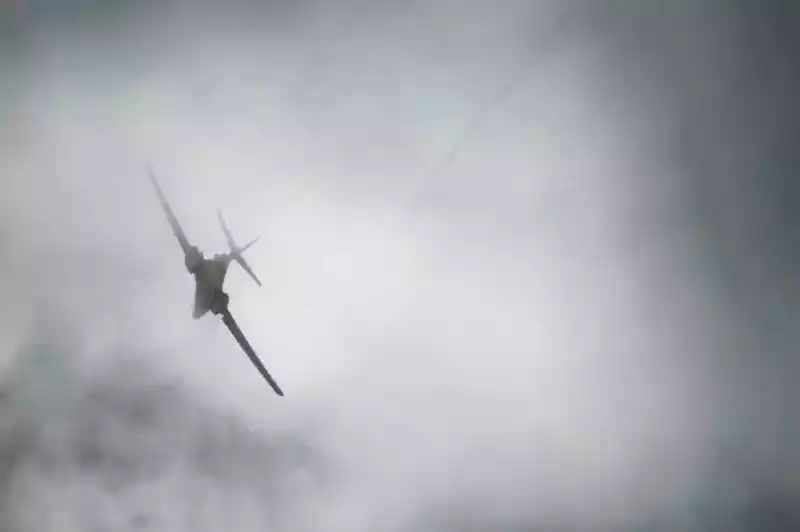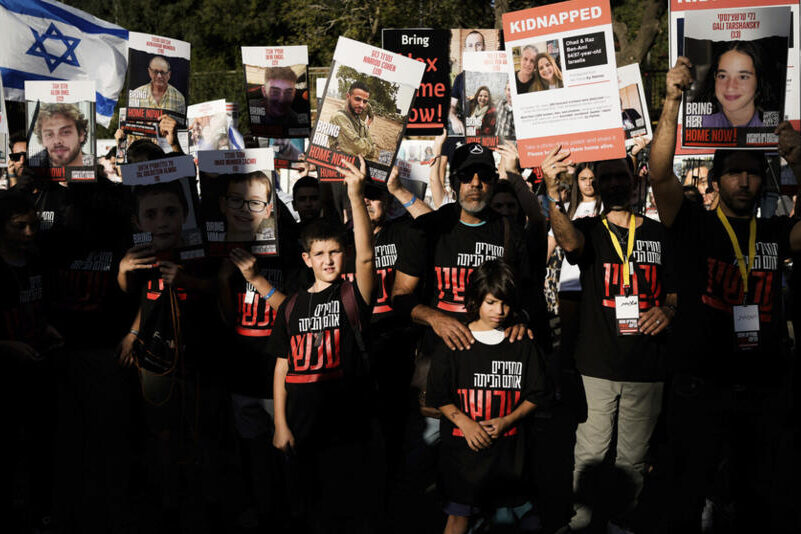The United States’ attacks on Syria and Iraq: Impacts

The United States’ attacks on Syria and Iraq are causing alarm in the Middle East, amid an escalation due to Jordan’s drone offensive.
As if it were an advance that seems to have no end, the United States’ attacks on Syria and Iraq continue to be of great concern to the region.
On Friday, February 2, the United States carried out significant airstrikes on dozens of targets in Iraq and Syria. These attacks are in retaliation for a drone attack in Jordan last month that killed three US soldiers.
The United States’ attacks on Syria and Iraq were more numerous and extensive than previous ones launched since October when Iran-backed armed groups began attacking US forces across the region in protest of Israel’s war in Gaza.
To recap, the United States’ attacks on Syria and Iraq were in response to a drone attack carried out by Iran-backed militants against a US military post in Jordan on January 28. This attack killed three US service members and injured over 40 others.
Biden’s balancing act with Iran aims at deterrence, not a broader war.
The attack marked the worst loss of US military lives in the region in almost three years and the first US military deaths since the Gaza war erupted.
President Joe Biden promised at that time to make “all those responsible accountable at the time and in the manner we choose.”
The attack in Jordan marked a significant escalation of tensions between the United States and Iran-backed groups attacking US bases throughout the region in protest of Israel’s war in Gaza.
These groups, believed to be funded and trained by Iran, hold the US responsible for Israel’s actions by supplying weapons to the Jewish state and not enforcing a ceasefire.
Since October, when the war between Israel and Hamas began, the US military has carried out several attacks on weapon depots of Iranian proxies in Iraq and Syria, but none of these attacks deterred the militants, whose 165 attacks wounded over 120 US service members across the region.
However, none of the other attacks by Iran-aligned groups since October resulted in the death of US service members, forcing Biden and his national security team to respond more forcefully.

Details of the United States’ attacks on Syria and Iraq
The United States’ attacks on Syria and Iraq lasted 30 minutes and targeted 85 objectives in seven locations in Iraq and Syria.
The White House stated that the operation utilized aircraft, including B-1 bombers. Over 125 precision-guided munitions were fired, according to the White House, and the attacks were deemed “successful.”
The US attacks killed at least 16 people in Iraq, including civilians, and injured another 25, said the Iraqi government on Friday.
The attacks affected areas near the border with Syria and targeted facilities used by the Hashd al-Shaabi – or Popular Mobilization Units (PMU) – linked to Iran, in the Iraqi city of Al-Qaim, according to Iraqi officials.
The PMU is a predominantly Shiite paramilitary force supported by Iran and based in Iraq. Unlike other Iran-backed groups in the region, the PMU is linked to the Iraqi government and closely tied to Shiite blocs aligned with Iran that dominated Iraqi politics for years.
Regarding reactions, the Syrian Ministry of Foreign Affairs stated that it “condemns this blatant US violation” and categorically rejects all the pretexts and lies promoted by the US administration to justify this attack. Syria also warned that the US attack could “fuel the conflict in the Middle East in a very dangerous way.”
Meanwhile, a spokesperson for the Iraqi Armed Forces denounced the attacks as a “violation of Iraqi sovereignty.” For now, the US attacks on Syria and Iraq have not affected “high-value targets, focusing instead on command/control, logistics, and stock of drones/rockets.”
Iran has repeatedly stated that it does not seek conflict. This Friday, Iranian President Ebrahim Raisi said his country would not start a war but would “respond forcefully” to aggressors. There have been conflicting messages from Iran-backed militias throughout the region.
While the Kataib Hezbollah group in Iraq, backed by Iran, announced on Tuesday that it would suspend attacks against US forces, another group in Iraq, Al-Nujaba, said it would continue to target US forces.
To worsen the volatile situation, experts argue that Iran does not exercise complete control over its proxy groups.

Read more: Former President Donald Trump lost the lawsuit filed for defamation.






